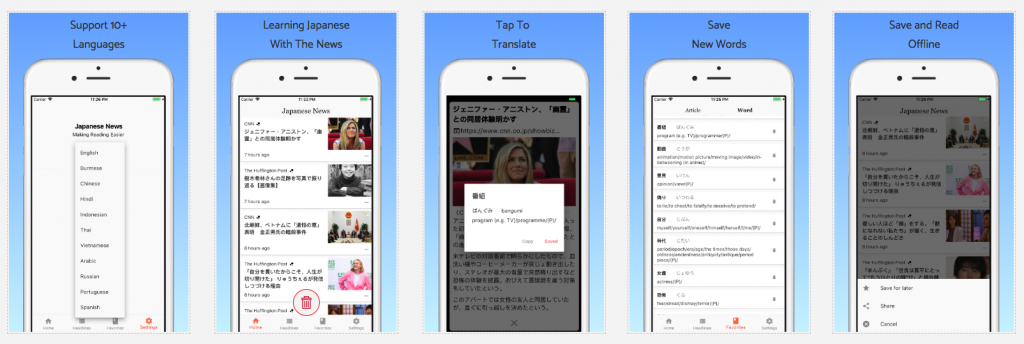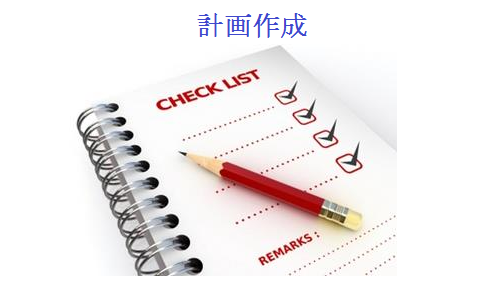960,383 total views, 43 views today
A great way to study Japanese is by watching, listening to or reading ニュース(にゅーす), the news.
The news helps you learn important vocabulary and improve your listening and comprehension. Another advantage is that you can know what the heck is going on. All of the studying I did with the news came in really handy during the nuclear meltdown in Fukushima a few years ago. I was very glad I’d done it.
But I have to say that it’s tough at the start. When I first moved to Japan ten years ago, I planted myself in front of the news nearly every night and couldn’t make heads or tails of what anybody was saying. But I stayed the course and I kept studying, along with practicing conversation whenever possible.
Here are some tips that made it easier for me (and will for you too).
Tips for Learning Japanese with the News
1. Become a News Junkie
Consume a lot of news on a regular basis. Of course, the more you practice, the better your comprehension will become. But with news, there are certain phrases and words that are used repeatedly, such as:
について – about, concerning
によって – according to, due to
。。。に注意してください (。。。にちゅういしてください) – please beware of…/be careful with…
詐欺に注意してください。(さぎにちゅういしてください。) – Please beware of fraud.
雷雨に注意してください。(らいうにちゅういしてください。) – Please be careful with the thunderstorm.
政府 (せいふ) – government
問題 (もんだい) – problem, issue, question
事件 (じけん) – affair, case
地震 (じしん) – earthquake
You’ll get used to hearing these words and phrases, and this will boost your comprehension.
2. Let It Wash over You
When you first start studying with the news, don’t try to understand everything that’s being said. That will drive you insane. Instead, take in whatever you can pick out and try to get the gist of what they’re saying. If you find yourself losing the thread of what’s being said, try to start up again with the next story.
3. Remember New Words and Phrases
Whenever you’re able to pick out a new word or phrase, write it down. This will help you remember it the next time you hear it. Before you start your news watching sessions, do a little drilling on your new vocabulary to help it stick so that you’ll be better able to follow your stories.
4. Go Audio
Most of us watch the news on TV, but if you’re studying a language with the news, another option is to listen to the radio or a news podcast. In an audio format, broadcasters tend to talk more slowly and clearly. I noticed this when I discovered the talk radio stations in Tokyo. With podcasts, you can save episodes to go back and listen to them again.
5. Use Your Interests
If you’re not particularly interested in the news, choose a specific field of the news that interests you. If you’re a baseball fan, watch the sports news. If you like cars, find an automotive news podcast. If you’re into music, find some news about the Japanese music scene.
6. Follow a Story
Find a particular story that interests you and follow it. Each day, tune in to news about your story. You’ll remember the vocabulary and have the necessary context to understand the latest broadcast. I remember doing this with a newspaper story about a high school girl murder case. Pretty morbid subject matter, I know, but it was easier to understand than the political bickering and other news.
7. Japanese and English
A cool exercise for learning Japanese with news is to find the same story in both English and Japanese. Watch or read the story in Japanese first, and then use the English story to see if you understood it. This is easiest to do with newspaper articles. Often, a news story will originate with a native English news service and be translated into Japanese. With the internet, it’s relatively easy to find both stories.
8. Not Necessarily for Conversation
Keep in mind that when you learn Japanese with news, you’re not learning everyday conversation. I point this out because you don’t want to talk like a news reporter when you hang out with your friends. I recommend learning with the news as part of an overall study routine that includes colloquial Japanese as well.
Resources for Learning Japanese with the News
All of the resources below are free and most are aimed at Japanese language learners.
- Japanese News App
- Japanese News Web: http://jareads.com



